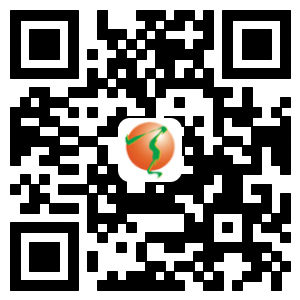Guangzhou women and infant hospital has rescued a premature baby weighing only 650 grams and 25 gestational weeks. Cephalosporin generation, invalid! Cephalosporin two generation, invalid! Cephalosporin three generation four generation, still invalid! Again, "top antibiotics": Tai Ning, Ma Ping, revival... No effect! Subsequent bacterial susceptibility tests showed that the newborn was resistant to 7 antibiotics.
Neonatal resistance is from mother. Pregnant women are likely to take these antibiotics when they eat large quantities of antibiotic residues. Antibiotic residues in animal products have become one of the important causes of drug-resistant bacteria.
Yin Xiaoqing, an associate researcher at the Rural Development Institute of the Chinese Academy of Social Sciences, investigated some livestock and poultry farmers in Shandong and Liaoning provinces. The survey found that in order to avoid * infection, different types of pig farmers widely use industrial feed. Industrial feed is generally considered as a carrier of antibiotics, hormones and other drugs. Among the farmers surveyed, 50% of the farmers added antibiotics and other drugs to the feed to varying degrees.
Bacterial diseases are the main cause of animal diseases. Experts believe that the irrational use of antibiotics in the aquaculture industry is mainly due to the need for animal disease prevention. Facing the more serious risk of infectious diseases than the market risk, some farmers have to take drastic drugs for livestock and poultry. Feeding by experience and medication by feeling can easily lead to excessive antibiotic residues in livestock and poultry products.
Qi Guanghai, deputy director of the Feed Research Institute of the Chinese Academy of Agricultural Sciences, believes that the rational use of antibiotics in feed can improve animal production performance, improve feed conversion efficiency and prevent disease. However, the long-term use of antibiotics and abuse of negative effects caused by concern, mainly reflected in the following: first, bacterial resistance; second, the decline of animal immune function, increased deaths; third, livestock and poultry products, drug residues, a direct threat to human health. There are two aspects of drug residues in animal products, one is to allow the use of illegal excess of antibiotics, the other is unauthorized illegal addition of antibiotics.
Professor Xiao Yonghong of Peking University Institute of Clinical Pharmacology and other experts estimated that China produces about 210,000 tons of antibiotic raw materials annually, of which 97,000 tons are used in animal husbandry, accounting for 46.1% of the total annual output. The abuse of antibiotics is very common in aquaculture all over the world, but it is even more serious in China.
The amount of antibiotic residues in animal products is generally very low, and the direct toxicity to the body is also very small, but after long-term consumption, it can accumulate in the body and bring harm to human health. Experts warn that regular consumption of antibiotic-containing "anti-food", even a small amount, may lead to urticaria or allergic symptoms and other adverse reactions; long-term consumption of "anti-food", consumer resistance will be unconsciously enhanced, equivalent to burying a "stealth bomb" in the body will If you have a disease, you probably will have no cure.
According to the reporter's understanding, although there are strict regulations on the use of Chinese feed medicines, the main problem is illegal use. Qi Guanghai said it is difficult for China to stop using antibiotics in feed at present, and developed countries like the United States can not do so.
In the investigation of the national conditions of Chinese medicine, the Chinese Academy of Social Sciences found that small and medium-sized farmers not only use a large number of elimination antibiotics with serious toxic and side effects, but also some of the antibiotics that humans are still trying out have been used in livestock, poultry and fish. Many livestock and poultry fishes are not killed but overkill.
In 1996, China promulgated food hygiene standards, veterinary drug residue detection is limited to tetracycline antibiotics. After accession to the WTO, developed countries set up barriers to China's export trade. For example, in 2002, chloramphenicol in honey exported to the European Union exceeded the standard, resulting in hundreds of millions of dollars of losses for exporters.
In recent years, China has begun to attach importance to drug residues in animal foods. In 2002, the Ministry of agriculture revised the "maximum residue limits of veterinary drugs in animal derived foods". However, some veterinary drugs, which are still in use, have not yet formulated drug residue standards. Residues of some veterinary drugs (including therapeutic and banned drugs) have not been established.

